Fields of Study
There are three fields of study in the Master of Nursing program – students will enroll in only one field of study:
Admission Requirements
Applicants are admitted under the General Regulations of the School of Graduate Studies. Applicants must also satisfy the Graduate Department of Nursing Science’s additional admission requirements as stated below. Meeting minimal requirements does not ensure admission.
Minimum Admissions Requirements
Additional Information for Admission
English Facility Requirements
Applicants must demonstrate a good command of oral and written English. All English facility requirements must be met at the time of application. If you do not meet the minimum requirements, please make arrangements to write another English proficiency test and submit results no later than the application deadline.
We do not support out-of-province placements. If you reside outside of Ontario, you will be required to relocate to Ontario for your practicum placements. For students living outside of the Greater Toronto Area (GTA) but within Ontario, we will attempt to identify suitable placements in areas that are convenient for you, however, there is no guarantee. Please note that the presence of an affiliation agreement does not guarantee that we will be able to secure a placement at that site.
Health Systems Leadership and Administration
The Master of Nursing (MN), Health Systems Leadership and Administration (HSLA) program is designed to prepare nurses for formal leadership roles in health care systems in Canada and internationally.
You will learn critical appraisal of evidence, leadership and management theories, organizational design, policy frameworks, and program planning and evaluation to enhance your future leadership and administrative practice. Completion of practicum placements facilitates the application of scholarly learning into practice settings and supports your professional growth as a future advanced practice nurse. Emphasis will be placed on ethical leadership, nursing advocacy, health equity, and resource allocation.
Graduates are prepared for careers in health care administration, health policy, professional practice leadership, and other related roles.
You will also have the opportunity to apply to complete the Certified Health Executive designation from the Canadian College of Health Leaders during the HSLA program.
The MN – HSLA program requires 5.0 full-course equivalents (FCEs) including:
A 1.0 FCE practicum-based course (NUR 1169Y), which should be taken alone in the final session and only after completion of all other coursework and program requirements.
Fall (September – December)
Winter (January – April)
Spring/Summer (April – June)
Note: Y denotes 1.0 FCE and H denotes 0.5 FCE
The MN – HSLA courses are offered online using both synchronous and asynchronous instruction.
On-campus requirements
There are three required on-campus learning periods where students must be in Toronto.
Orientation
A two-day Orientation session that usually takes place during the first week in September. An email will be sent confirming dates, location and registration in mid-July.
Year 1 Residency
Year 1 Residency is embedded in the NUR 1151H course and is typically for three to four days in mid-March.
Year 2 Residency
Year 2 Residency is embedded in the NUR 1169Y course and is typically for two to three days during the last week of June.
Important Note: The Summer courses: NUR1152 and NUR1169Y include a required supervised practicum component. Courses are prescribed and normally students progress through the program within a defined student cohort.
Successful completion of Year 1 courses is required for students to enter Year 2 of their program.
Placement Practicum Requirements
See the Graduate Placements section of the website.
Clinical Nursing
The MN-Clinical program is designed to enhance your clinical and professional expertise and scholarly background to prepare you for a variety of clinical leadership and advanced practice roles in healthcare organizations.
You will learn how to use research and theory to improve direct clinical care and optimize health systems across different contexts. An emphasis on education, leadership, collaboration and consultation, health policy, and quality improvement, will help you meet the demands of advance practice nursing. Practicum placements will facilitate the translation of theoretical and practice-based knowledge into clinical settings and provide mentorship and networking opportunities. You will also learn to enact the principles of ethical practice, health equity, and advocacy as a future clinical leader.
With a MN Clinical degree, you can advance into some of the following roles: clinical nurse specialist, nurse educator, professional practice leader, clinical nurse instructor, and more.
Ideal for those interested in advanced practice clinical roles such as:
Program Requirements
The MN Clinical Nursing program requires completion of 5.0 full-course equivalents (FCEs) including:
A 1.0 FCE practicum-based course (NUR 1179Y), which should be taken alone in the final session and only after completion of all other coursework and program requirements;
Two elective field of study courses (1.0 FCE). One of these two field of study courses may be selected from outside the Faculty of Nursing.
Students in the Clinical Nursing field follow a structured program of study, but with flexibility to enroll in clinical field of study courses based on career and academic interests, and subject to course availability. Students in the Clinical Nursing field will enroll themselves in their chosen field of study (elective) courses via ACORN.
The Faculty will enroll students in all other required courses.
Fall (September-December)
Winter (January-April)
One core field of study course ** and
Spring/Summer (April-June)
Fall (September-December)
One core field of study course ** and
Winter (January-April)
One core field of study course ** and
Spring/Summer (April-June)
*NUR1170H and NUR1179Y include a required practicum component, and associated in-class learning activities. There are 24 practicum hours in NUR1170H and 160 hours in NUR1179Y. NUR1179Y must be taken alone in the final semester and only after completion of all other coursework and program requirements.
**Students must complete 2 core field of study courses over the first 5 semesters of the program.
NOTE: Clinical students may take one field of study course offered by another department or faculty, subject to approval by the Program Director, Graduate Programs. Students wishing to take a course outside the faculty should contact the Registrar for assistance with course enrolment.
Placement Practicum Requirements
See the Graduate Placements section of the website.
Nurse Practitioner (NP) Program
The MN-NP program is designed for nurses who have not yet completed a Master’s degree in nursing and would like to pursue an exciting career as a nurse practitioner. Our innovative program is accessible to students across Canada through our flexible learning format.
The MN – NP program prepares you to provide personalized, holistic, and high-quality healthcare to clients and patients across the lifespan. As a graduate of this program you will be prepared to become an advanced practice health professional who works autonomously to provide essential healthcare services within professional, ethical, clinical, and legal standards.
You will learn to integrate knowledge acquired in the program with the practice and theory of advanced nursing practice. A focus on therapeutic management, health promotion, disease/injury prevention, decision making, social, and psychological theories will prepare you to provide comprehensive health services to diverse populations in a variety of contexts and practice settings.
The centrality of equity, diversity, inclusion, and Indigenous Reconciliation to NP practice is emphasized in the program. Global Health issues in Canada and around the world, such as the structural conditions that impact equity deserving groups and communities will be examined.
Apply Now to the SAMIH Cohort
Up to 30 newly admitted Master of Nursing (MN-NP) and Post-master’s Nurse Practitioner (PMNP) students will have the opportunity to apply to be part of the first cohort of students at the Scarborough Academy of Medicine and Integrated Health located at the University of Toronto, Scarborough campus (UTSC).
Learn more about how Bloomberg Nursing is expanding nursing education in the eastern GTA and Scarborough region.
Program Requirements
-
The MN – NP program is a hybrid program with three select on-campus residencies, and simulation-based learning.
-
Virtual classrooms are combined with asynchronous and synchronous discussions.
-
Practicums take place across four courses in the programs. Practicums are in-person, individually designed, and conducted in Ontario only, primarily with the GTA.
During the practicums, students will work with nurse practitioners in various hospital and community settings to learn about and begin to enact the role of a nurse practitioner. Students in the MN-NP program will complete six (6) required courses focused on NP clinical competencies as well as four (4) MN foundational courses. Courses are offered once per year and must be taken sequentially. Required MN NP courses include:
A combination of courses for the all ages NP specialization:
Year 1
NUR1406Y must be taken alone in the final session and only after completion of all other course work and program requirements.
Important Note: Successful completion of Year 1 courses is required for students to continue in Year 2 of the program.
Courses
See yourself in our program
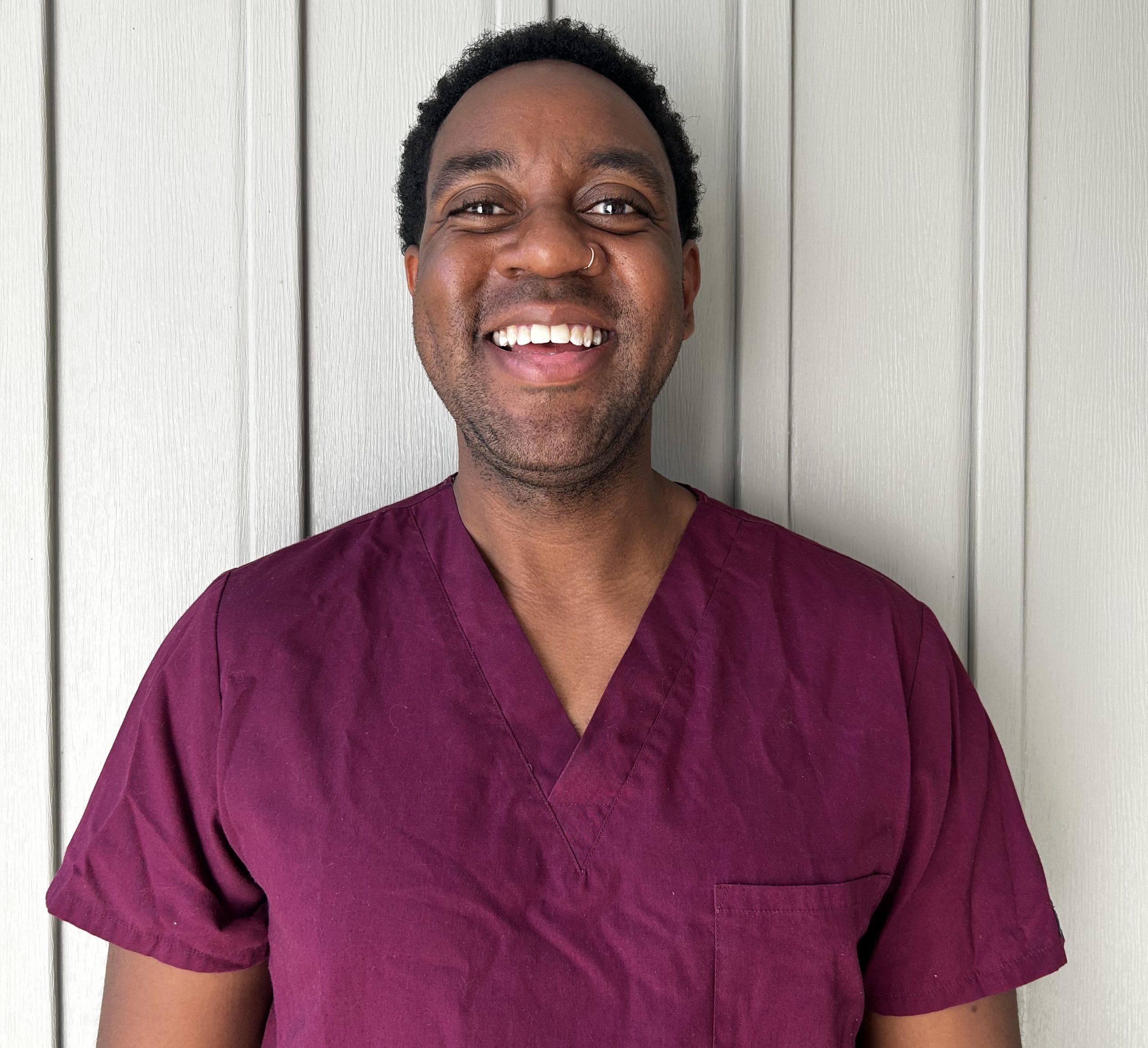
Kyle Samuels
Master of Nursing students wants to provide competent and compassionate care to patients from different cultural and socio-economic backgrounds.
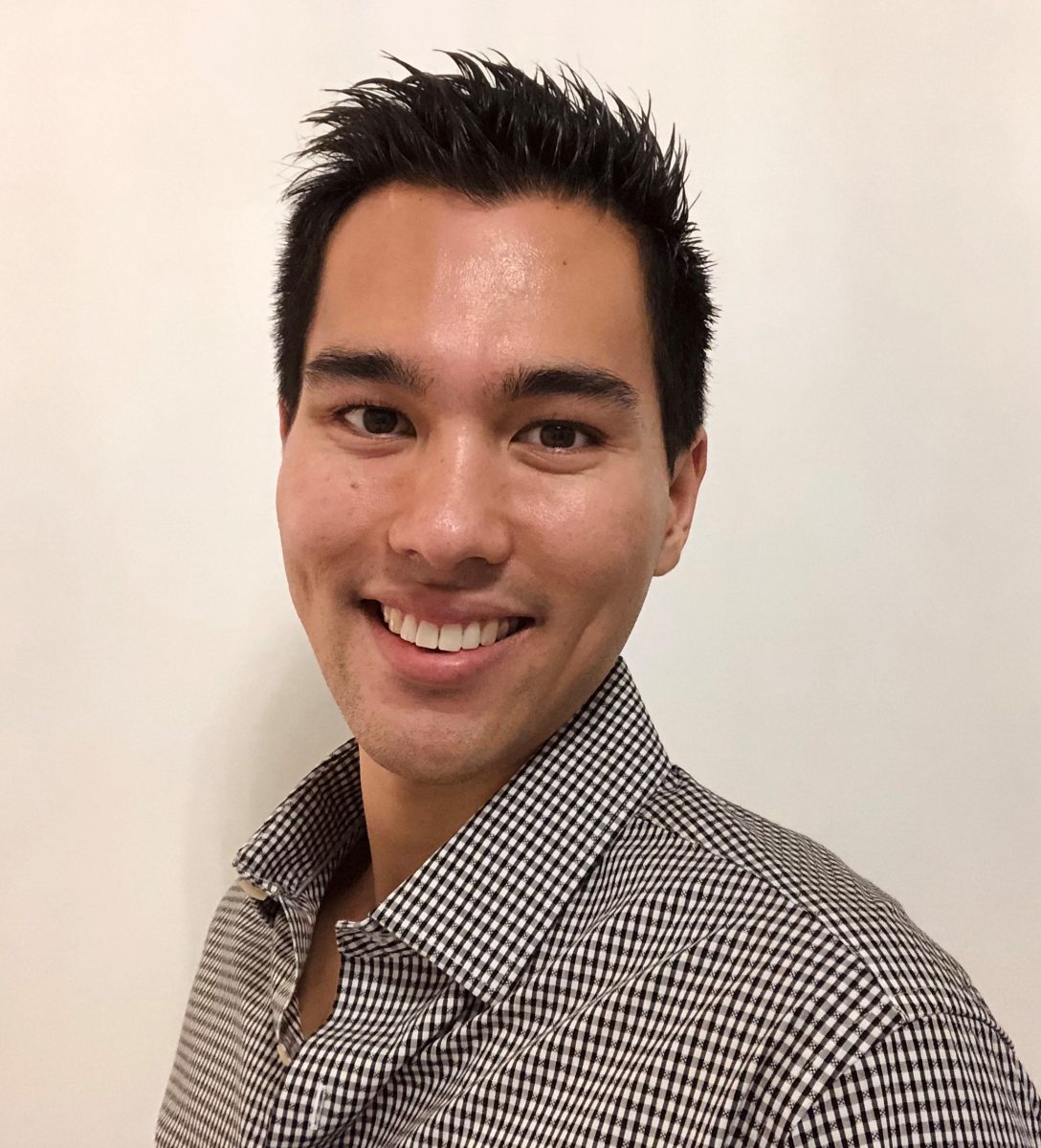
Richard Tang
Master of Nursing student has led the co-creation of a new simulation – a type of experiential learning – for undergraduate nursing students that is focused on providing specialized care to the 2SLGBTQIA+ community.

Jinal Patel
A chance to make a difference – New nursing students share inspiration for joining nursing profession
Latest Testimonials
I was impressed by the dedication and expertise of the faculty members. Their commitment to fostering a dynamic learning environment, combined with their wealth of real-world experience, truly set the […]
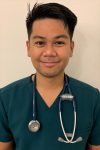
The first year was hard and busy but transformational. The curriculum provided students with various ways of learning including lectures, online discussions, case studies, and simulation labs. Learning hands-on from […]
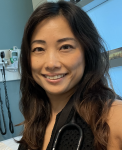
Being a Doctor of Nursing student has led me on a journey of intellectual growth and discovery and through rigorous research, collaboration with esteemed peers from across Canada, and mentorship […]

Introduced at a time when learning health systems are unfolding across Canada, Bloomberg’s Doctor of Nursing program has commenced at a perfect time. During this program, I have gained a […]
I chose to attend Bloomberg Nursing at the University of Toronto for graduate studies to engage deeply with leading nurse scholars and learn within a community of emerging nurse leaders, […]
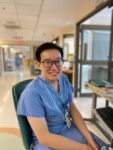
As a student, my most memorable learning experience took place in a second-year class on reflexive nursing practice. Prior to taking this class, I was unaware of reflexive practice and […]

Related Programs
Undergraduate
Bachelor of Science in Nursing
Our accelerated, two-year Bachelor of Science in Nursing program opens the door to a long and rewarding career in health care.
Graduate
Post-Master Nurse Practitioner Diploma
A program designed for nurses who have completed a Master’s degree, preparing them for NP roles.
Graduate
Collaborative Specializations for Master’s and Doctoral Students
Providing a multidisciplinary experience that enhances student expertise in their chosen graduate degree.
Graduate
Doctor of Philosophy
Building leaders in nursing science. The PhD program prepares scholars to lead the way in innovative health care policy, practice, and research.
Graduate
Doctor of Nursing
Thesis-based program. Students learn to identify and investigate a challenge in healthcare or nursing education and design implementation and evidence-based strategies to improve outcomes.


